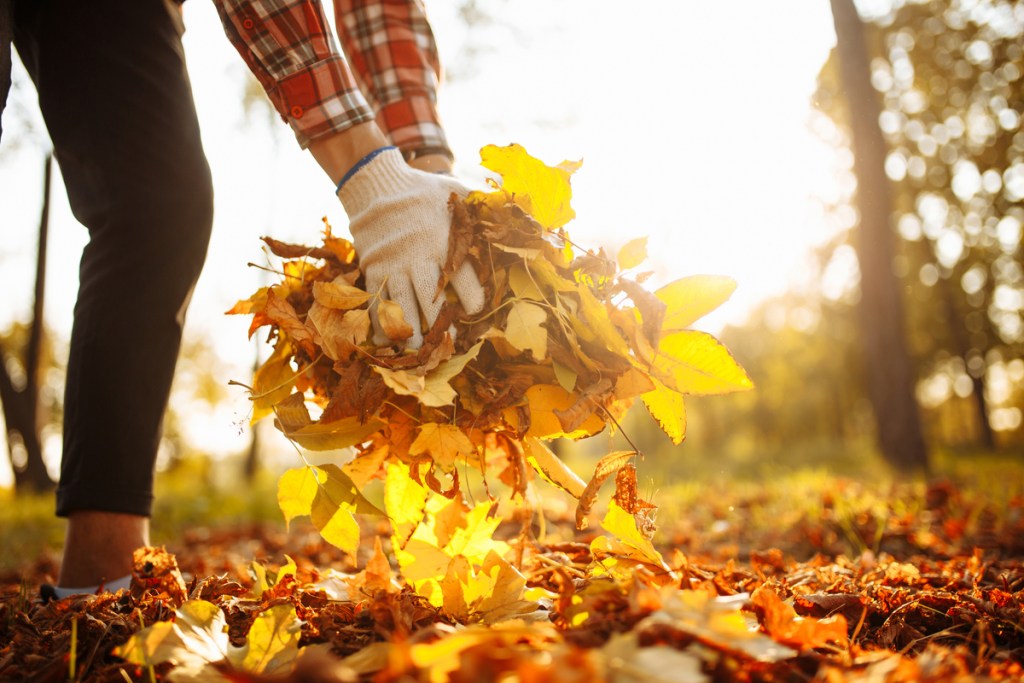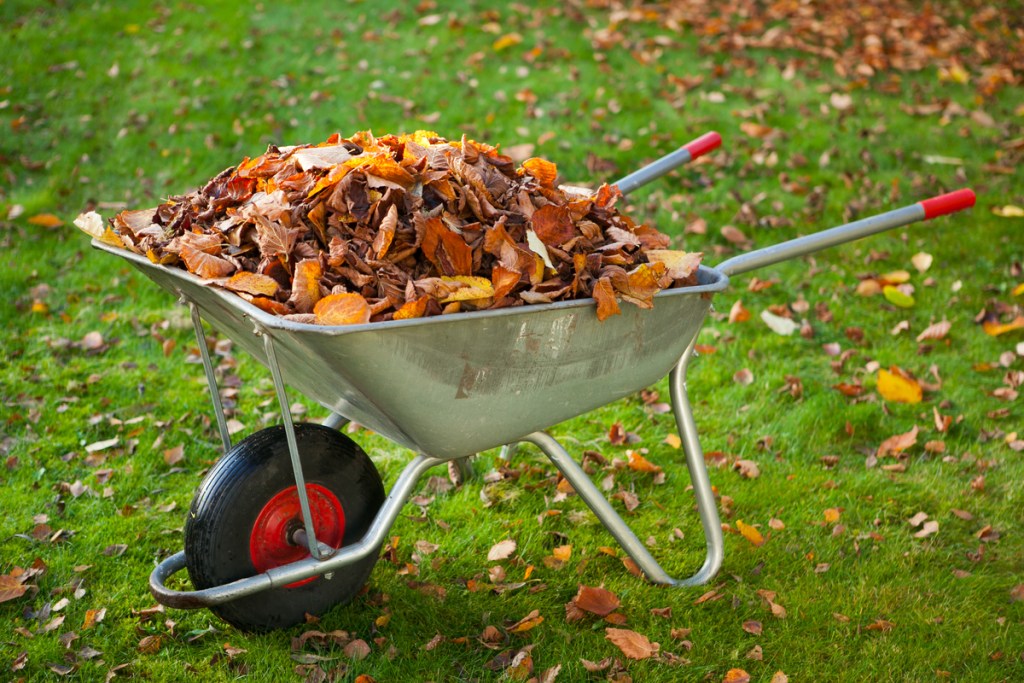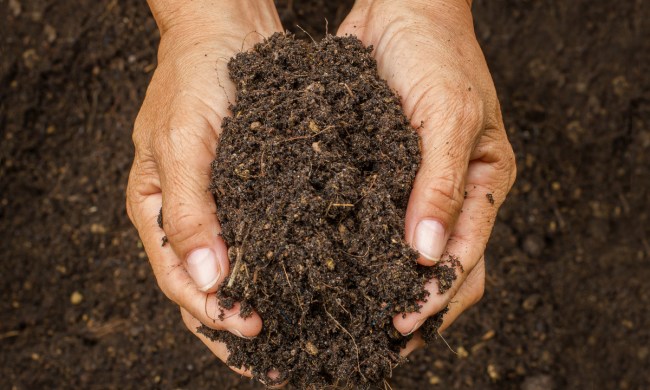When considering what to do with all the leaves that wind up in your yard, why not take advantage of the benefits leaf compost has to offer? Not only can you compost through winter, but you can use the leaf compost to prep your gardens the next season and give the soil some additional nutrients. Better yet, it’s a cost-effective, organic way to care for your plants.

What is leaf composting?
Leaf composting refers to the process of turning fallen leaves into a nutrient-rich material for your garden. If you aren’t familiar with any kind of composting, it may take a bit of trial-and-error to get the hang of it, since you’ll need to make sure your compost pile or bin has a good balance of carbon, nitrogen, and moisture.
The leaf composting process
Leaf composting doesn’t have to be complex. A basic composting bin is 3×3 feet, which will give you enough room to turn the compost as it decomposes to promote air circulation and stir around moisture. The size of the compost bin will help ensure the leaf compost maintains a 60° F. temperature, even in the winter (so long as it’s in a spot that receives full sun). Remember that your compost — leaf or otherwise — should never be soggy; too much moisture will hinder your composting process.
For leaf composting in a bin or pile, start with a 6 to 8-inch layer of leaves, an inch of soil, and an inch of a nitrogen source (manure, lawn clippings, etc.). Make sure to keep the pile moderately moist, turning/stirring the contents once every two weeks. It’s important to maintain a carbon/nitrogen/moisture balance in your compost to ensure that the process works smoothly.
If you don’t want to use a bin or pile, you can also compost leaves directly on your garden soil by using them as top dressing. Whichever method you choose, make sure you use your mower to chop up the leaves. Smaller pieces will break down faster, easier, and have less chance of rotting or causing some kind of mold.

Benefits to leaf composting
Not only is leaf composting good for the garden, it comes with a lot of added benefits beyond being a cost-effective way to create your own topsoil. Check out these advantages:
- Repelling weeds
- Retaining water
- Improving soil porosity
- Improving soil pH
- Improving plant and root growth
- Preventing erosion
- Enhancing the tilth (which is the prepared surface soil)
- Adding nutrients to the soil
- Providing an organic, chemical-free nutrient source
Because compost will often include soil organisms (worms, insects, etc.), you’ll notice water and air will have an easier time moving through the soil containing leaf compost. This is due to their burrowing activities, which help to loosen up the soil.
It may take you a few years to get the hang of the process, but having leaf compost on hand to prep your garden can provide you with benefits you won’t necessarily get from chemical fertilizers. While soil organisms are promoted in leaf compost, chemical fertilizers can alter the soil so much that organisms don’t find it a suitable environment.
All types of compost make nutrients more easily accessible to the plants you’re growing by introducing organic matter into the soil as it decomposes. So long as the composting process is done properly, your garden soil will experience most, if not all, of the above leaf composting benefits.


